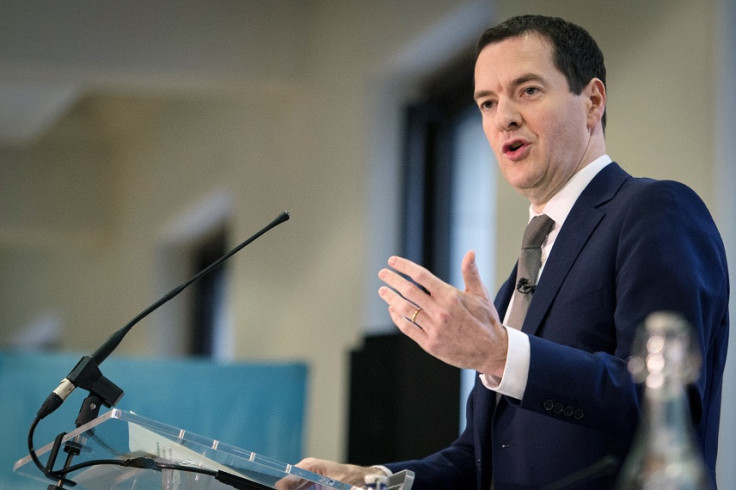Chancellor George Osborne warns UK economy not out of the woods yet amid China rout

George Osborne has warned that the UK economy faces a "cocktail of threats" as global markets fall on the back of China's slowdown and plummeting oil prices. The chancellor warned business leaders in Cardiff against complacency in the face of data that points to a strong economy.
Improved finances meant Osborne was able to make a U-turn on controversial tax credit reforms as well as protect budgets like policing in November's Autumn statement. The chancellor was able to rein in public sector cuts after being handed a £27bn windfall by the Office for Budgetary Responsibility after higher-than-expected tax receipts and lower interest payments on the UK's debt.
But Osborne will say the job of restoring the nation's finances is not complete and there is still work to do. "Anyone who thinks it's mission accomplished with the British economy is making a grave mistake," he said.
"2016 is the year we can make the lasting changes Britain so badly needs — or it will be the year we look back at as the beginning of the decline. This year the economy is mission critical. Last year was the worst for global growth since the crash and this year opens with a dangerous cocktail of new threats."
The chancellor pointed to the recent slowdown in China as sign conditions could worsen in 2016. He will add that the best way to confront complacency is by "sticking to the course we've charted." His comments come after International Monetary Fund (IMF) chief Christine Lagarde predicted a "disappointing" 2016 for the global economy.
"In many countries the financial sector still has weaknesses and in emerging markets the financial risks are increasing. All of that means global growth will be disappointing and uneven in 2016," Lagarde wrote in the German newspaper Handelsblatt.
The IMF predicted global growth would stand at 3.6% in 2016 in a forecast made back in October. But after Federal Reserve chairwoman Janet Yellen tightened fiscal policy across the pond and increased US interest rates to 0.25% – the first increase in a decade – Lagarde warned of "potential spillover effects" in the case the dollar strengthens and companies default on payments.
© Copyright IBTimes 2024. All rights reserved.







